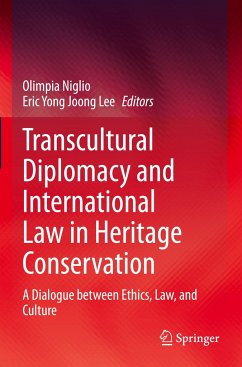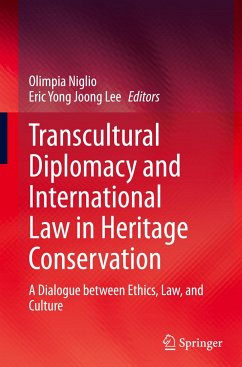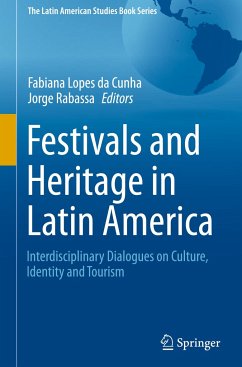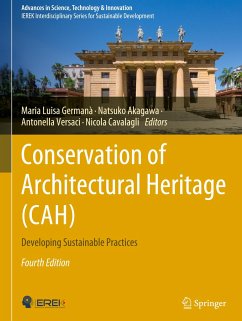
International Relations and Heritage
Patchwork in Times of Plurality
Herausgegeben: Christofoletti, Rodrigo; Botelho, Maria Leonor
Versandkostenfrei!
Versandfertig in 6-10 Tagen
106,99 €
inkl. MwSt.

PAYBACK Punkte
53 °P sammeln!
Patchwork in times of plurality encompasses the multitude of actions as a revealing symbol of ethos, actors, organisms, and manifestations of preservation and dialogue frontiers. This plural metaphor, almost like a patchwork, aggregates and yet segregates, conforms, but disfigures, and boosts the meanings which represent this new field that international relations have been recently crossing. Just like the mirror metaphor - that reflects everything to all and, sometimes, intervenes in distortions - the patchwork analogy allowed the book to take responsibility for the disclosure of preservation...
Patchwork in times of plurality encompasses the multitude of actions as a revealing symbol of ethos, actors, organisms, and manifestations of preservation and dialogue frontiers. This plural metaphor, almost like a patchwork, aggregates and yet segregates, conforms, but disfigures, and boosts the meanings which represent this new field that international relations have been recently crossing. Just like the mirror metaphor - that reflects everything to all and, sometimes, intervenes in distortions - the patchwork analogy allowed the book to take responsibility for the disclosure of preservation actions on a global scale. The book has a pioneering role insofar since it is the only publication with such characteristics, concerns, and coverage. The work studies the interconnection between cultural properties and international relations by understanding them as a mosaic before the bridges that intertwine people and borders.
The main goal of this work is to illustrate in what way intergovernmental relations have been privileging heritage and culture as acting fields for its broader needs. Therefore, the book addresses topics related to the international agenda, focusing on its less debated themes. Two examples of these undervalued matters are the link between actors, preservationist actions, and the universe of world cultural heritage. The book also pursuits a critical dialogue between interdisciplinary fields that narrow heritage frontiers in search to contribute with a spectrum of academic perspectives and (inter)national study cases. To serve distinct economic, social, or political purposes, institutionalized heritage (embodied by different values) becomes instrumentalized in a top-down direction. In a development frame, when we perceive culture as indispensable to human life, the past is transformed into exchange currency. Through the creation of alternative fields of action, usually in a bottom-up logic, the present builds new heritage connections. Digital heritage's preservation, dissemination, and appreciation have been representing these same nets.
The main goal of this work is to illustrate in what way intergovernmental relations have been privileging heritage and culture as acting fields for its broader needs. Therefore, the book addresses topics related to the international agenda, focusing on its less debated themes. Two examples of these undervalued matters are the link between actors, preservationist actions, and the universe of world cultural heritage. The book also pursuits a critical dialogue between interdisciplinary fields that narrow heritage frontiers in search to contribute with a spectrum of academic perspectives and (inter)national study cases. To serve distinct economic, social, or political purposes, institutionalized heritage (embodied by different values) becomes instrumentalized in a top-down direction. In a development frame, when we perceive culture as indispensable to human life, the past is transformed into exchange currency. Through the creation of alternative fields of action, usually in a bottom-up logic, the present builds new heritage connections. Digital heritage's preservation, dissemination, and appreciation have been representing these same nets.














